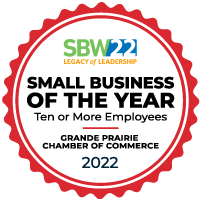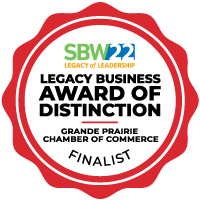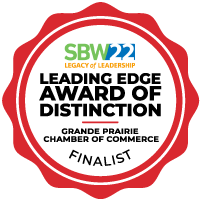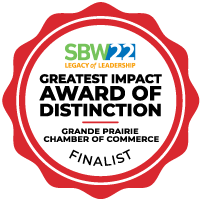So. You just launched your shiny new website, and went over to Google to find it. You type in some keywords, scroll through the first page, and it’s nowhere to be found. What gives? This article will give you some quick troubleshooting tips, explain a bit about how search works, and why your website might not rank right away.
[box_frame]
First, a bit of troubleshooting…
The first thing we need to determine is your site is listed in Google at all. Try searching for the exact name of your business. Is your website there? If not, try searching for your URL (e.g. “www.company.com”). Is it there now?
If your website isn’t listed, it could be that:
a) Google doesn’t know about it yet
- Solution: Submit your site to Google.
- If you built your website with nine10, we’ve done this for you already.
b) Google knows about it, but hasn’t indexed it yet
- Solution: Wait a few days and try again. It takes time to index the site.
I’ve waited weeks, and nothing. What now?
If you’ve submitted your site and nothing is showing up after a few weeks, then most likely it’s a technical issue getting in the way. This is usually simple to fix, but can be more complicated in some situations. If you can’t seem to get your website listed, get in touch with us.
[/box_frame]
My website is listed, but ranks low… why?
Searching for your exact business name
Generally speaking, if you search for your exact business name, your website should show up pretty hight. Google is pretty good at finding exact matches like this.
Reasons why your listing might not show up high for your business name:
- Your business is still new, or the website is new, or both. If your business is new, or this is the first time your business has launched a website, then chances are you won’t do very well in search for the first 3-6 months. If you are an established business which has some online history (e.g. Facebook pages, listing in directories like Yellow Pages, Chamber of Commerce, COSSD, etc.) and you just launched a website, it will be a little easier for you than a brand new business with no history. The reason for this is Google needs time to start trust you’re sticking around for the long-haul and that you’re a legitimate business. Our experience is this takes around 3-6 months and most businesses will just not do as well the first time they launch for this period. The only real solution here is to do other kinds of marketing during this time. Google Ads can also help accelerate this process a bit by driving traffic to your website and sending Google signals that the website is being used and is useful to people.
- Your business name is a common word or phrase. If your name is a common word, it may be possible Google confuses a search for your business with another meaning. For example, if your business name was simply “Horse Training”, people searching in Google for “Horse Training” will probably get pages about the act of horse training (Wikipedia articles and so forth) and not necessarily your business. This might be a tough thing to fix without making your business name more unique.
- Your business name is an acronym. If you use an acronym to refer to your business name, it’s possible the acronym is used by other organizations or has other meanings. For example, if your business was named “All The Best Inc.” but you used “ATB” as an acronym, that will compete with other organizations like Alberta Treasury Branches (ATB), and chances are the bank will win against you because they’re bigger and have more clout in search. You may also end up competing against international organizations and non-profits which use that acronym. In time Google may learn that people searching in Grande Prairie for your ATB acronym means you instead of the bank, but there’s no guarantees. This might be a tough problem to solve without either having a unique acronym or doing a lot of SEO / marketing online to teach Google that the acronym means you.
- Your business name is used by a lot of other businesses. This especially applies if you have multiple competitors in your city with the same or similar name. It will be harder to show up because you’ll need to beat them first, and if you’re new (see first point #1), this will sometimes just take time, aside from effort.
If your website isn’t showing up pretty high under the business name, there might just be a simple technical issue getting in the way. Get in touch with us and we can likely help you.
Searching for keywords related to your industry or services
The other way to be found in Google is when a customer searches for what you do. For example, a customer might search for “web design grande prairie” when trying to find a company that builds websites.
Being found this way is the holy grail of search marketing. It’s how most customers will search for you and arguably drive the most new visitors to your website. If you can land a top spot for the right keywords, it can drive a lot of targeted traffic to your website.
But getting there isn’t nearly as easy. That’s going to take some work.
Why is it so hard to rank high for searches related to what I do?
If you’re not showing up for searches like this, it’s really not that surprising. There are two key reasons for this:
- Competition: Search for almost anything in Google and look at how many results it found. They’re usually in the millions. That’s how much competition is out there for your keywords. Many of these websites have been around longer than yours, and in that time have invested more into promoting themselves. So you have some catching up to do.
- Lack of Presence & History: As described above, if you are a new business or have launched a website for the first time, and you don’t have a lot of history or presence online, then you simply won’t do as a well as an established business. The best way to beat this is to do some online marketing to build that presence and history.
This means you have some work to do before you can get there. And this is the point where we exit the land of basic technical fixes and move into the realm of marketing & promotions.
The two most important things affecting your search ranking
When you search for something online, Google looks at its index of websites and uses something like a scorecard to rank each one. The score card has hundreds of factors—from things like whether the words appear on your website, to how long your site has been online, to how much people are talking about you on social media.
Even though there are hundreds of things on that scorecard, they pretty much all boil down to two things:
- Trust: Can this website be trusted?
- Relevance: Is this website relevant to what the searcher is looking for?
Let’s dig into these two things a bit to see how they work.
Trust
Imagine a complete stranger walked into your office right now. You’ve never seen, met or heard of this person before. They pull out a box full of products and ask you to buy one. They don’t let you ask any questions and they don’t explain anything about the products. Would you trust this person enough to buy something?
That’s what you look like to Google when you first launch your website. Google doesn’t know who you are or if it can trust you yet. You have to earn that trust before it will “do business” with you.
Isn’t Google just a machine that counts words?
Most of the information people have about search engines dates back to the 90’s. Google Search today is entering the realm of artificial intelligence. It acts like a real person whose trust you have to earn, rather than a simple machine counting words on a page.
So how do you earn Google’s trust?
A few of the factors that affect trust include:
- How long your company has been in business
- How long your domain has been registered
- How long your website has been online
- How many places list your company and/or website online
- How “official” or “trusted” the places that list you are
- How many complaints are associated with your domain, email, etc.?
This is a simplistic list, but the underlying theme to all of these is that it takes time. Just like you have to build a reputation in the real world, you also need to build one online. So it goes without saying, the sooner you start your web design project, the sooner you’ll see success.
Here are a few things you can do early on to help you build trust:
- Register your domain for longer periods at a time (e.g. 3-5 years)
- Use secure (SSL / HTTPS) hosting for your website
- Get your company listed in official directories, like your local Chamber of Commerce, and other sources like BBB, the phone book, etc.
- Create social media profiles and start engaging people with your brand
- Get in the news, particularly places that publish articles online (and ideally link back to your site)
- Get manufacturers and suppliers to list you as an authorized dealer or distributor on their websites
This is by no means complete, but it’s a great place to start. Before you jump away to do these things though, be aware that how you do them will greatly affect your results. Knowing how to do that right is a big part of the knowledge and value you get when you hire us to do Search Engine Optimization for your company.
Relevance
If you want to be successful in search, stop trying to understand the search engine and start trying to understand your customer.
The next big thing on Google’s score card is relevance. Google’s #1 goal is to help people find the information they need. This means the information should be the most relevant, and it should be information the customer can trust.
The good news is you have more control when it comes to relevance than you do trust. While everything you do affects trust, some factors are just up to father time and the public. But with relevance, you have a number of things directly in your grasp.
Some of the things you have complete control over include:
- The content of your website
- The structure of your website
- The design of your website
- The features of your website
These all play a big factor in how relevant your website is to a user’s search. You can further generalize these points into two key things.
- Content: This is ultimately what your website provides to a customer. Whether it’s information, pictures, videos, or tools they can use, this is what people are after when they visit your website.
- Strategy: This determines what content, where that content should be, how much of it should be there, who is the content for, and why we’re doing this in the first place.
That’s why the first place to improve your search rankings starts with truly understanding your customer. How do they think? What information do they need at a particular point of the buying cycle? How do they search for that information? How will your website meet their needs once they find it? Once you know the answer to these questions, you can start building the content and website your customers need.
If you want to be useful to customers (and rank well in search), invest in:
- Understanding your customers
- Quality content (professional writing, photos, videos)
- Strategic website planning (which ties in with your overall marketing plan)
- Ongoing development of content, promotion and upkeep after the website launches.
This is harder to do than it sounds. But you don’t have to do it yourself. We can help you build a marketing & website strategy.
Narrow vs. Broad
Something I should mention is that the broader the topic or geographic region you’re trying to target, the harder it is to rank high.
- Topic Example: It’s a lot harder to rank for “insurance” (broad) than it is to rank for “auto insurance grande prairie” (narrow & specific)
- Geographic Region Example: It’s a lot harder to rank for “accountants alberta” (broad – big region) than it is to rank for “accountants grande prairie” (narrow – smaller region)
The two reasons for this are competition and relevance:
- Competition: A broader subject or a bigger region means more competition. There’s a lot more accountants in Alberta than there are in Grande Prairie, so you’ve got a lot more work to do. Just like there’s a lot more pages with the generic term “insurance” than something specific like “auto insurance grande prairie” on them.
- Relevance: It’s harder to be relevant the further you are away from the searcher. Google knows generally which city people are searching from, and tries to match them up with local businesses first. Otherwise, you’d be getting listings for insurance agencies in Europe—probably not that useful. So if somebody in Red Deer searches for an accountant, and you’re located in Grande Prairie, Google is more likely to bring up local results before they bring up you. You’ll have to do a lot more work to get around that.
Search Engine Optimization is just marketing
When you cut away the clutter, the act of “Search Engine Optimization” is nothing more than doing your online marketing. Most of the things you do in content marketing (also known as “inbound marketing”) are the same things that improve your search rankings. And it all starts with a strategy and seeing it through.
How long does it take?
Search Engine Optimization projects are usually measured in months, not days or weeks. A simpler project may take 3 months, more complex ones may take 6-12 months or more. Typically you will hire an SEO professional on a monthly contract to perform these services for you.
By the way: Don’t cheat!
It’s tempting to skip the extra work of (or not wanting to pay for) doing this right, but if you skip these steps, you’re going to get exactly what you pay for. To make the investment in your website work, plan to invest in everything around the website. Or, brush up on your online marketing skills. Either way, the work has to get done for you to succeed.
You’re not alone
The good news is you don’t have to do this yourself. You can get help from a number of agencies and service providers. We offer a range of services that can help you, including:
- Marketing Consulting (to develop your marketing & website strategy)
- Website Design (to build an SEO-friendly website)
- Content Creation (to update your site with fresh information)
- Search Engine Optimization (to do a combination of all of the above)
- Social Media Training (to learn how to use social media effectively)
- Website Training (to learn how to update your website on your own)
If you’re interested in how to get more out of your website, give us a shout using the form below.
Book a Free SEO Consultation
It only takes a second – fill out this form and we’ll show you how to:
- Fix the Top 3 SEO mistakes that hold websites back
- Rank higher in Google, Bing and Yahoo!
- Get more business from your website





